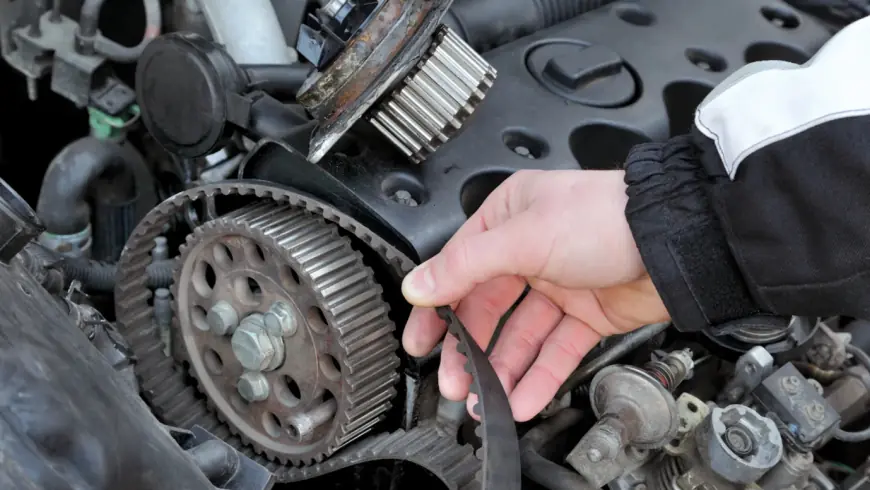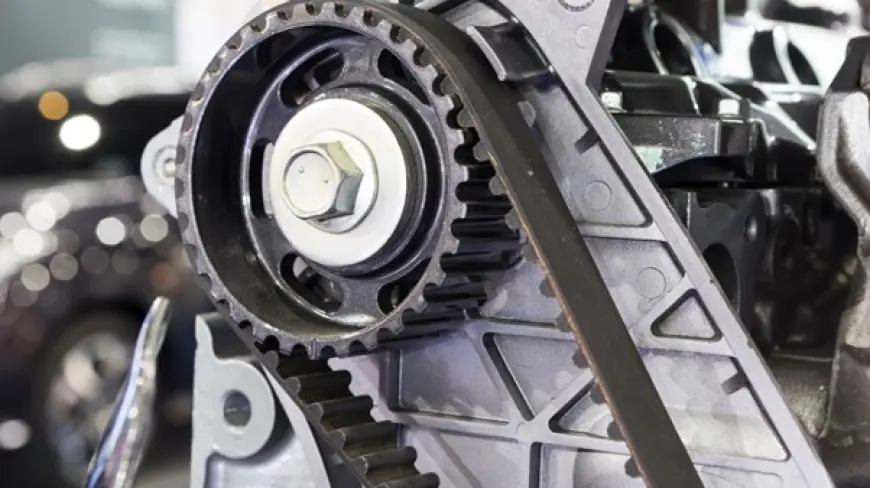The Consequences of Ignoring a Failing Volkswagen Timing Belt
Are you hearing the subtle yet unignorable ticking noise from your Volkswagen engine? Are you experiencing sluggish engine performance or sudden power loss while driving?

Introduction:
Are you hearing the subtle yet unignorable ticking noise from your Volkswagen engine? Are you experiencing sluggish engine performance or sudden power loss while driving? Does your Volkswagen have over 60,000 miles on the odometer? If the answer to any of these questions is yes, then this blog post might just be what you need. Today, we delve into the ignored or often sidelined topic of a failing timing belt and its potential impact on your beloved car. This post is designed to act as a comprehensive guide filled with rich content broken down into easy-to-understand sections.
Your timing belt is one of those unsung heroes, a quintessential component of your car’s engine, working silently under the hood with little appreciation until things go wrong. It synchronizes the movement of your engine's camshaft and crankshaft, ensuring your engine performs effectively. Ignoring initial signs of a failing timing belt can lead to devastating consequences, snowballing into costly repairs or even catastrophic engine failure. So why risk it?
In this post, we’ll scrutinize the reasons why vigilance over your timing belt condition is critical, the indicators of a failing timing belt, how to proceed when faced with a failing timing belt, and the fiscal implications of all these scenarios. It’s time to unveil the unseen perils of ignoring a failing Volkswagen timing belt.
Unraveling the Role and Importance of the Timing Belt
Why is the timing belt such a crucial part of your Volkswagen engine? The timing belt coordinates the rotation of the camshaft and crankshaft, thereby ensuring the valves of your engine open and close at the right time during the cylinder's intake and exhaust strokes. It's this precision that ensures the smooth functioning of your car's engine. When this silent cog in the wheel begins to falter, it disrupts the mechanical harmony, leading to severe engine damage.
As the timing belt ages, it can become loose, start to fray, or even break. In any of these scenarios, the camshaft's rotation goes unsynchronized with the crankshaft, leading to the valves staying open longer than they should. A critical repercussion is the piston hitting an open valve, causing significant damage in your car's engine.

Life without a timing belt in your Volkswagen isn't feasible. Hence, failure to adequately maintain or replace a worn-out timing belt is akin to playing Russian roulette with your engine's health. Now, it gets clearer why paying heed to this "behind-the-scenes" part is serious business.
Telltale Signs of a Failing Timing Belt
We’ve established that a timing belt serves an integral function and failing to maintain it brings dire consequences. But what signs should alert you that your timing belt is heading for trouble?
First and foremost, a high-pitched noise, like a ticking or clicking, from the engine bay is a typical indication. Second, a rough-running engine that struggles with acceleration, or a car that misfires frequently, can also be suggestive of a timing belt issue. Lastly, if your car has clocked over 60,000 miles and hasn't had a timing belt replacement, it's high time to get a professional assessment.
Understanding these signs is not just about preventing unpleasant surprises on the road, it's about preventing expensive surprises at the mechanic's garage. Wealth of knowledge and proactive upkeep are your shields against a failing timing belt.
The Financial Fallout
Ignoring a failing timing belt can have harsh monetary implications. If your Volkswagen timing belt fully fails, leading to the dreaded "engine misfire", you're potentially looking at complete engine replacement.
In the realm of car repairs, this is among the costliest to encounter. A conservative estimate for a new engine costs can range between. This does not even include the labor charges and possible supplemental repairs.
Ignoring the timing belt issue is akin to a gamble where the stakes are high and the odds heavily stacked against you.
How to Proceed When Faced with a Failing Timing Belt
So your worst fear has become a reality – your mechanic tells you your timing belt is failing. What next?
Immediate action is to replace the timing belt – the cost would be a fraction of an engine overhaul, typically between $300 to $500. A proactive move would also be to change other components like the water pump, front engine seals, and tensioners simultaneously as these parts often have similar wear patterns.
The moral of the story, for your wallet's sake, act promptly when your timing belt shows signs of wear.
The classic adage finds its application here. Regular service and inspections can help identify wear and tear in your timing belt before it gets severe.
Adhere to the manufacturer's recommended maintenance schedule and ensure your mechanic inspects the timing belt during your Volkswagen's periodic service. Also, keep an ear out for unusual engine noises.
Prevention, in this case, is not just better than cure but also significantly cheaper and less stressful.
Conclusion:
The cost of ignoring a failing timing belt can be monumental, emotionally and financially. As we've established, the timing belt is the unsung hero of your Volkswagen engine, ensuring it runs smoothly and efficiently. It's a small component that plays a gargantuan role, making its maintenance vital for your car's overall health.
If you neglect the warning signs and skip necessary upkeep, you face the wrath of hefty engine repair bills, or worse, replacement costs. As we've often reiterated in this comprehensive guide, vigilance is vital. Replace a failing timing belt promptly, practice preventive servicing, and make informed decisions - the longevity of your engine and your peace of mind depend on it.
In the world of car maintenance, seldom do we encounter scenarios where the phrase "you're timing it wrong" could potentially translate into thousands of dollars. But when it comes to the humble timing belt of your Volkswagen, the context rings alarmingly true!
What's Your Reaction?
 Like
0
Like
0
 Dislike
0
Dislike
0
 Love
0
Love
0
 Funny
0
Funny
0
 Angry
0
Angry
0
 Sad
0
Sad
0
 Wow
0
Wow
0





















































